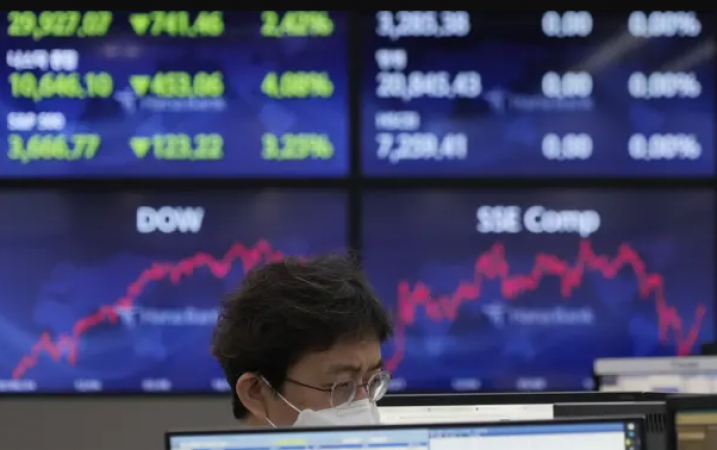
Hong Kong: In an effort to maintain their market position, Chinese lenders such as Postal Savings Bank and China Merchants Bank are set to pay off more than US$12 billion in permanent loans before funding costs associated with the US Treasury rise further. are happening.
According to stock exchange filings, the merchant bank will pay USD 1 billion in equivalent notes on October 25 and the Postal Savings Bank will redeem USD 7.25 billion of non-cumulative permanent preference shares on September 27. On 27 October, the Bank of Jinzhou, a local lender that government-run bad loan managers bailed out in 2020, will call its US$1.5 billion such securities.
The Bank of Zhengzhou will call its US$1.19 billion notes on October 18, while the Bank of Qingdao will settle US$1.2 billion in notes on September 20. In March, the Bank of Zheshang ended its transition.
The US has raised interest rates four times in a row this year, eliminating historically low borrowing costs for borrowers in international markets. This month, the benchmark 10-year Treasury yield rose to 3.45%, the highest level since April 2011.
For these lenders, whose permanent notes issued in 2017 are subject to coupon reset every five years if they are not redeemed, an additional 50- or 75-basis point increase this week could make things worse. Is.
Since permanent loans have no maturity date, borrowers are not required to make payments back to the noteholders. Market norms require borrowers to redeem the loan on the first call date as a demonstration of financial soundness to reassure investors and avoid penal moves in annual bond coupons.
According to Iris Tan, senior equity analyst at Morningstar, "the aim is to revive the confidence of offshore investors, but more importantly, they are looking to lower financing costs." The 4 to 6 per cent coupon rate on these 2017 permanent notes is about 2 per cent higher than the current domestic interest rates, he said.
According to its prospectus, the coupon on postal savings bank notes will reset to 6.294 per cent if not redeemed, which is 3.66 per cent plus 2.634 per cent margin based on the current yield on five-year US government bonds.
Perpetual notes issued by merchant banks will be reset to 6.103 per cent based on a margin of 2.443 per cent. Considering the reset margin of 3.486 percent, the value of Bank of Jinzhou notes will be 7.146 percent.
With sentiment suffering from several hardships domestically and internationally, the redemption scheme is a relief to credit investors. Concerns have been raised about loan defaults due to the economic stagnation in the real estate market amid China's economic stagnation, Russia's invasion of Ukraine and the energy crisis triggered by tough policy in developed economies.
In a banking industry webinar on Wednesday, JPMorgan executive director Jessica Chen said it is more likely for these issuers to be on the call, at least on the first call date for Chinese banks.
Harry Hu, a senior director at S&P Global Ratings, says large banks view redemptions as a typical market action. He further added that small to medium-sized banks may try to maintain the market expectation [a redemption] to avoid impacting their future issuances.
However, the decision to repay its permanent preference shares next month will rest with Bank of Jinzhou. As against the regulatory limit of 8.5 per cent, its Tier-1 capital adequacy ratio will drop to 8.36 per cent, according to Harry Hu, senior director at S&P Global Ratings.
Analysts said it is important to keep an eye on the lender's lack of indications as to how it can replenish its capital with onshore financing once the redemption is complete. The lender is located in the Liaoning province of northeastern China.
According to Lee LeFu, director of BofA Securities at a Fitch webinar, the bank did not have the option to redeem the notes, but did not do so because of the "certainly reputational risk". “Strong government support is behind strong prestige sentiment. This is one of the main factors supporting the continued interest of many credit investors in this industry.
Analysts predict that Chinese banks will continue to cash in on their offshore securities, despite higher interest rates overseas. He claimed that banks, especially smaller ones, can pay off their more expensive foreign loans and refinance domestic where costs are falling amid policy easing.
Are smallpox vaccines effective against the new monkeypox variant?
Mother of murdered 5 year old boy was remanded in a mental health facility in Hong Kong
Light went off as soon as Power minister reached, SP taunted